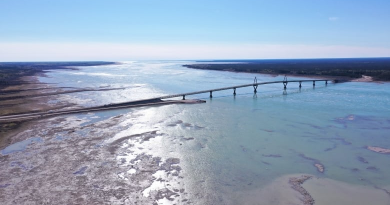Plastic recycling slow to gain ground in Finland

Finland has traditionally had high recycling rates, but a national system for collecting household plastic waste was not set up until early 2016, when the Rinki recycling network was set up.
It got off to a slow, modest start, with collection boxes mostly located in cities.
Last year, half a kilo of household plastic waste was collected for recycling per capita in Finland. This year that has nearly tripled to just short of 1.5 kilos.
Next year it is poised to rise further as housing cooperatives begin installing their own plastic collection points.
Not counting returnable beverage bottles – which can be redeemed for 10 to 40 cents each –Finland produces more than 100,000 tonnes of plastic waste a year. Only about 16-17 percent of that is now recycled. The government has set a target for a recycling level of more than one-fifth within the next three years.
Household plastic waste that it dropped off in Rinki boxes is taken to the Ekokem recycling plant in Riihimäki, just north of Helsinki. The facility, which is owned by the state energy company Fortum, started operations just over a year ago. Various grades of plastic are sorted mechanically. However Fortum says it will still be a long time before this business is profitable.
3 big challenges
Before that happens, three challenges must be met. First there must be more demand for products made of recycled plastic. Secondly, the quality must be improved. And thirdly, a more efficient system is needed to bring more plastic to the facility.
Authorities in Finland and the EU have worked actively to push the collection of plastic, but have not put as much thought into how the recycled plastic should be used, industry insiders tell Yle.
Ekokem product manager Mikko Koivuniemi notes that recycled plastic is often used to make plastic shopping bags, but their use is also being actively discouraged. He says that recycled plastic should be used more in public construction projects such as sound barriers.
Meanwhile the price of recycled plastic has dropped sharply all over Europe. The main reason for this is that China has restricted the import of waste-based materials.
Europe’s own recycled plastic storage facilities are nearly full. There are efforts to boost profitability by building larger processing plants. Joining this movement is Fortum, which aims to at least double the amount of plastic it processes.
Manufacturers shoulder responsibility
Producers of consumer plastic packaging are now levied a waste fee that goes to help pay for recycling. These Finnish manufacturers are represented by a group called Suomen Uusiomuovi. Its CEO, Vesa Soini, predicts that recycling of household plastic won’t be profitable for at least a decade, if the true costs of collecting the material are totted up. Soini says it is however possible that someday Fortum may no longer need to charge a fee for accepting consumer plastic.
Industrial and store plastic waste is much easier to recycle than that from households, which is mostly made up of food packages, including many kinds of plastic and other materials and varying levels of purity and cleanliness. At present only about half of the plastic picked up at drop-off points can actually be recycled, with most of the rest incinerated as energy waste.
“For instance about one fifth of what ends up in these bins is cardboard, which is burned right away. We can use about 70 percent of the rest to make new plastic,” explains Ekokem’s Koivuniemi. Meanwhile packages with deposits, such as drinks bottles, have a high level of re-use in Finland.
Simplifying plastics
Plastic makes up about two-thirds of the average household’s trash. However there are at least half a dozen types of plastic, often combined in sections or layers of the same packages, which makes recycling difficult.
Satu Pasanen, a researcher at the VTT Technical Research Centre of Finland, argues that streamlining and simplifying consumer plastics is the key to making the recycling more efficient. However moving towards a single type of plastic is a huge challenge that will require international cooperation, she says, noting that for the UK’s Ellen MacArthur Foundation is funding research in this area.
Suomen Uusiomuovi’s Soini agrees, saying that for instance major furniture chains and food manufacturers should work with the foundation toward this aim.
“Major packagers have expressed the desire to move toward recycled or bio-based materials,” he notes.
Related stories from around the North:
Canada: Plastic microbeads- a toxic substance in waterways-from the Great Lakes to the Arctic, Radio Canada International
Finland: Finland to revamp recycling system, Yle News
Greenland: Study finds increase in litter on Arctic seafloor, Blog by Mia Bennett
Sweden: Stockholm pitches Xmas trees in water to help fish, Radio Sweden
Russia: Submariners feed polar bears with garbage, Barents Observer
United States: Glass recycling gains momentum in remote Alaska, Alaska Dispatch News



